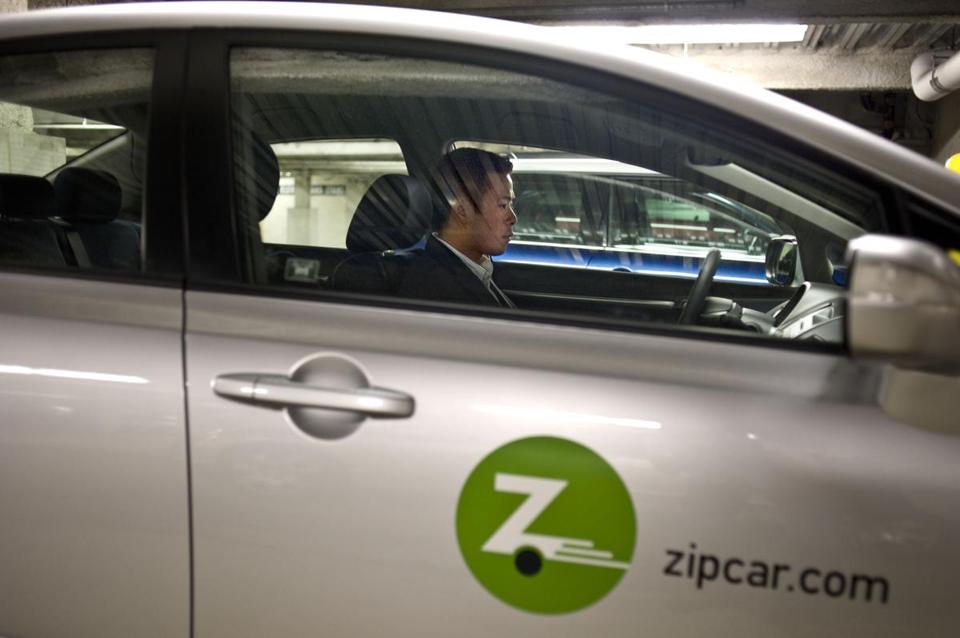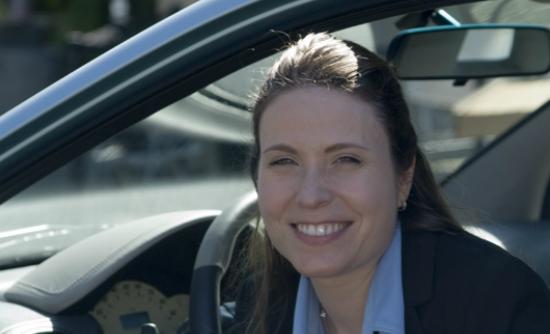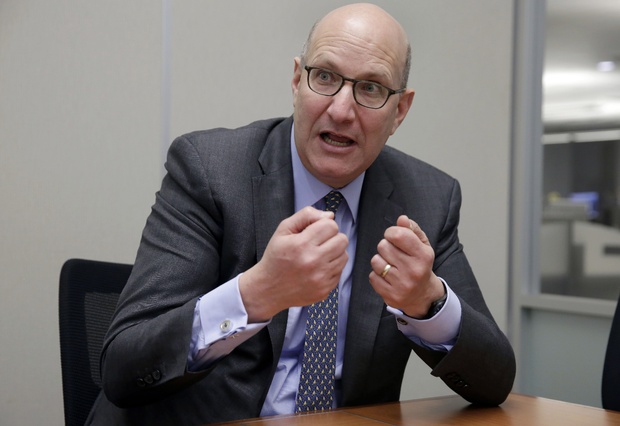
by Jaelen Loche | Feb 4, 2015 |
By Laurent Barelier Integrating shared-use mobilities with government-owned public transit services is regarded as a notable opportunity and challenge in urban transportation. Such integration will help in solving the first-and-last mile problem, creating a valuable synergy between public transportation and shared-use mobility services. Shared-used mobilities often complement and sometimes compete with public transportation. Bikesharing systems, for example,provide opportunities to complete first-and-last mile connections to public transit networks. That was not possible before. It is a complex situation: shifts away from public transit are most prominent in core urban environments with high population density and transit vehicles often over-crowded at peak periods. Shifts toward public transit in response to bikesharing appear most prevalent in lower density regions on the urban periphery and in less dense regions…* To read the full article, click...

by mattchristensen00 | Feb 3, 2015 |
By John Chesto If you thought parking in Boston was tough now, just wait a few months. The city of Boston is launching a pilot program that could essentially gobble up at least 200 public parking spaces as part of an effort to promote car-sharing and provide more travel options for residents. Companies will bid for the right to park two types of cars in city-owned spaces. Traditional car-sharing services such as Zipcar could bid for specific on-street and municipal lot spaces, where cars would park when not in use. But separately, the program would allow users of so-called free-floating car services — which let drivers pick up and drop off cars in any legal spot — to park in residential spaces and at meters without worrying about getting a ticket or requiring a neighborhood sticker. In Boston — where fighting for a parking spot can turn into a full-contact sport — this approach is sure to raise some eyebrows. Evelyn Addante, a retired transportation planner who lives in Charlestown, said the program will put more cars on the street, without necessarily prompting people to shed their cars. “It’s almost counterintuitive to say this is going to work,” she said. To read the full article, click here....

by Jaelen Loche | Feb 2, 2015 |
By Sachin Shenolikar There is no speed limit to the pace of change in ride sharing and ride sourcing. Companies such as Uber and Lyft made this activity a national phenomenon, but smaller businesses are also transforming the ecosystem with new ideas for getting around cities. To make matters even more complicated, grassroots movements such as casual carpooling now allow commuters to take even greater control of their trips. Can safety regulations and laws keep up? This is a major challenge in the years ahead. Real Business spoke with Susan Shaheen of the University of California-Berkeley Transportation Sustainability Research Center about what to expect in the near future. To read the full article, click...

by Jaelen Loche | Jan 31, 2015 |
By Carolyn Said Living car-free or car-light in San Francisco is increasingly easy — and it’s not just thanks to Uber. Car sharing is quietly spreading throughout the city, allowing people to rent cars by the hour or mile, pick them up at widely dispersed locations, reserve them with a smartphone, and unlock them with a phone or credit card. “Technological advances are giving people new and convenient ways to get around more freely without having to own a car,” said CalPIRG spokeswoman Diane Forte, whose consumer group recently released a report on the growth of high-tech transportation options nationwide. It found that San Francisco is a national leader in innovative ways to get around town, second only to Austin, Texas. To support car sharing — and try to reduce car use — San Francisco is experimenting with reserving up to 900 on-street parking spaces sprinkled throughout the city for the exclusive use of car-sharing vehicles. The three companies getting spaces over the two-year pilot program, which is being phased in slowly, are City CarShare, a nonprofit; Avis’ Zipcar, perhaps the best-known service; and Getaround, a “peer-to-peer” service that helps regular people rent their cars to others. To read the full article, click...

by mattchristensen00 | Jan 14, 2015 |
By Sarah Goodyear Last fall, when a group of deep-pocketed investors took over Alta Bicycle Share—the troubled company that operates bike-share systems in New York, Washington, D.C., Chicago, and several other major cities—one of the first moves they made was to bring on Jay Walder to head up the company. Walder has a long track record running big municipal transportation systems, in New York, London, and Hong Kong. Along with the shift of headquarters from Portland, Oregon, to New York, the hire was a signal that things were going to be different for the bike-share pioneer, which had been struggling financially, going forward. Wednesday, the company’s transformation took another step, with the announcement that it has a new name, Motivate. Walder says it’s meant to convey energy, action, movement, and evolution. I talked with him by phone to find out what he’s been doing since he took over two and a half months ago and how the rebranded, refinanced company hopes to take bike-share into the future. The interview has been condensed and edited. My first question is about how you’re developing business models. How are these systems getting funded? Are the funding models sustainable? What is new on the business side? I think the question is well placed. There are any number of examples of good ideas that in the end didn’t have a sustainable financial foundation. We’ve seen very different views for funding models for very different cities across the U.S. and even globally. At one end of the spectrum is New York, where we have a model in which we are not receiving any public support at...






